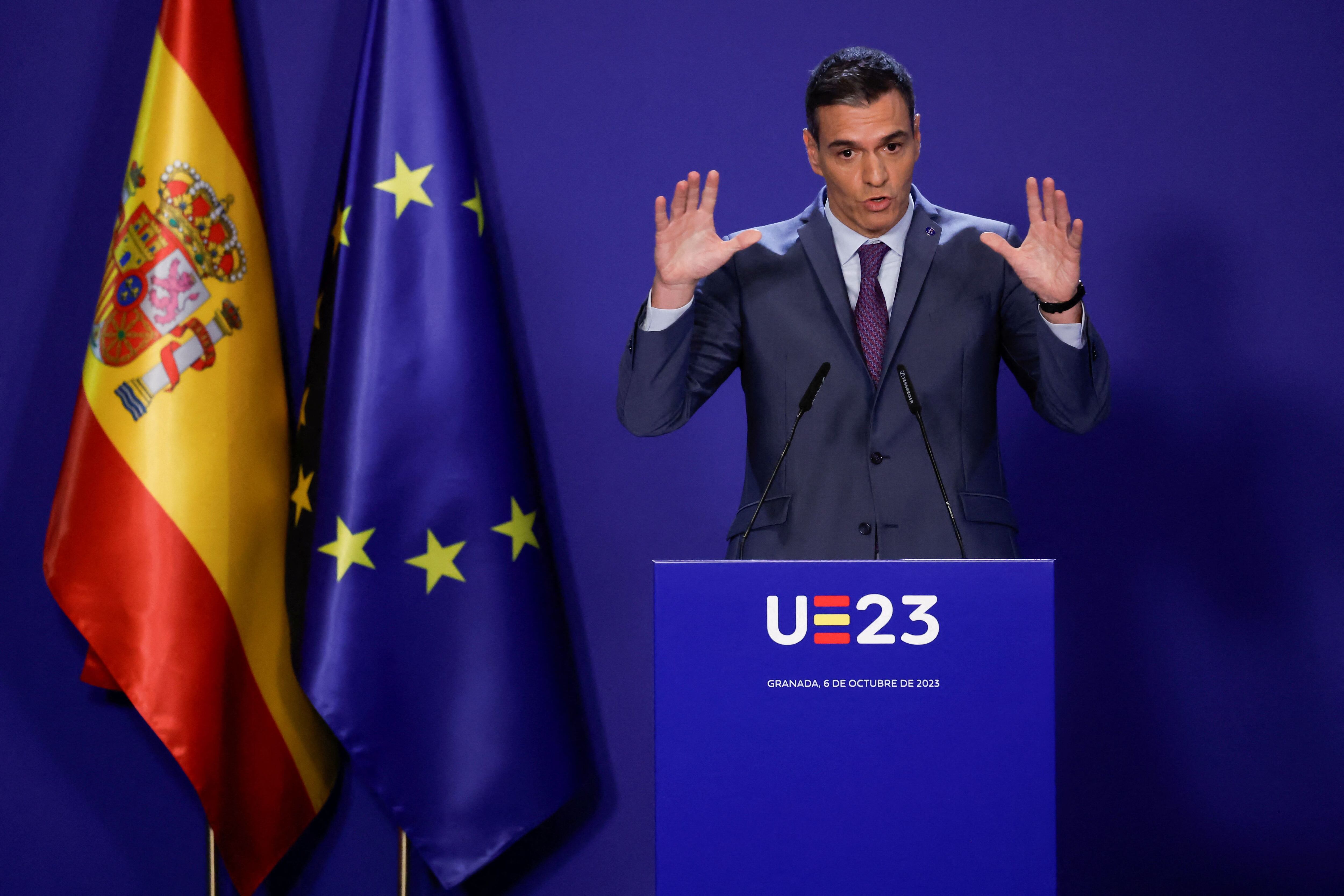Sánchez pronounces the word “amnesty” 105 days after 23-J
[ad_1]

Granada was the epicenter of the transcendental decisions about the future of the European continent and the European Union itself, but also, the Andalusian city was the place where the acting president of the Government, Pedro Sanchezhe pronounced the word “amnesty” again, a measure that has taken over the political spotlight since the July 23 elections.
105 days have had to pass since that date for the general secretary of the PSOE to mention it, although he had previously referred to it due to the possibility of it being undertaken. In fact, this Thursday, also in Granada, Sánchez admitted for the first time that negotiated this measure with the independence groups.
It may interest you: Pedro Sánchez paves the way for amnesty and prepares for an investiture in November
Neither more nor less, he did so in his appearance alongside the president of the European Commission, Ursula von der Leyenand the president of the European Council, Charles Michel. The still acting leader of the Executive has made express reference to this demand from Junts and ERC to give his support to Sánchez’s investiture regarding a question about the amnesty proposal prepared by Sumar.
“We know Sumar’s proposal, as we know that of other political parties in relation to the amnesty. Yes, I want to say that it is not the proposal of the Socialist Party,” Sánchez said. “The duty of all parties is to try to work to understand each other and achieve a government in Spain as soon as possible,” he said to emphasize that “there will be no agreement until everything is agreed.”
It may interest you: The PSOE distances itself from Sumar’s proposal on amnesty: “It is not our position”
Faced with criticism from the right of this eventual measure, Sánchez has defended that the amnesty “is still a way of trying to overcome the judicial consequences of the situation that Spain experienced with one of the worst territorial crises in the history of democracy in 2017″, but has once again rejected the existence of an agreement in this regard. “We are in full negotiation,” he said, adding that when this “takes place” it will be “transparent and public.”
Also, it will be in line with its applied policies of “progress and coexistence within the framework of the Constitution.” In addition, has defended the talks with the pro-independence parties, criticized even by the old guard of the PSOE, for limiting itself to shaping the result emanating from the polls. “The Spanish have spoken. “They have told us that this is the distribution of political forces, come to an agreement and we have a stable government.”
“The logical thing is that he is negotiating with the groups so that there is an investiture and that is the mandate of the Spanish people,” stressed the leader of the socialists, who has insisted on framing the conversations with the different groups of the parliamentary arc in the “ full democratic normality.”
With this gesture of mentioning the elephant in the room, Sánchez takes a new step towards his investiture, which involves an amnesty law to those prosecuted by processes Catalan. The parliamentary arithmetic that left on July 23 forced this initiative to be put in focus, since Junts and ERC demanded this measure from the first moment to explore their support for an investiture of Sánchez. This one, though The date has not yet been setis getting closer to thriving.
[ad_2]
